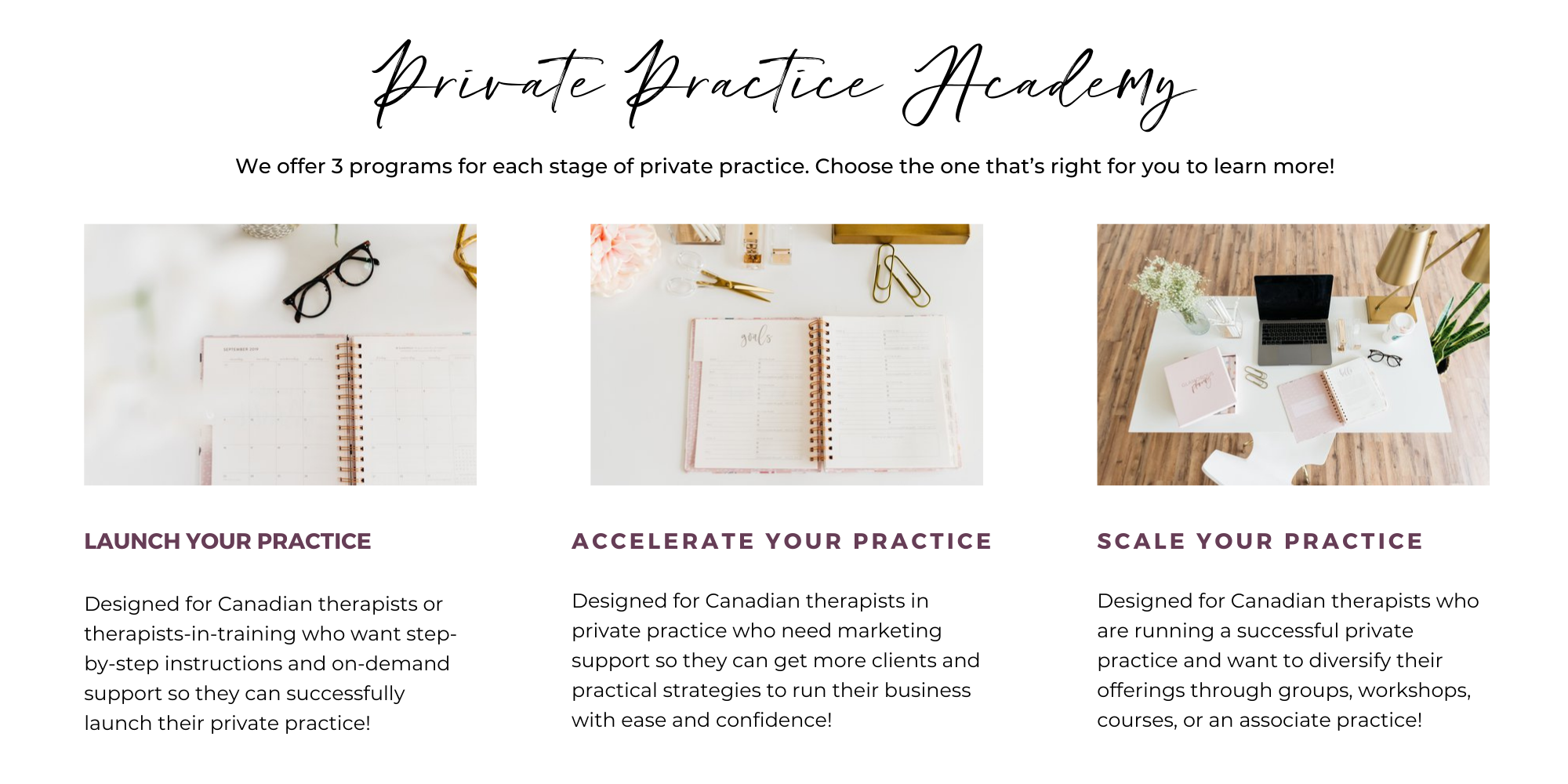When Things Go Wrong: A Therapist & Entrepreneur’s Perspective
Things go wrong all the time.
A client cancels last minute. An important link breaks on your website right before a launch. A carefully mapped-out plan for your week is suddenly thrown off course by a personal emergency, illness, or unexpected life event.
Whether you’re in the therapy chair or behind the scenes running a business, something will eventually go sideways.
The difference lies in how we respond.
Back when I was running my insurance brokerages, I was constantly managing risk, timelines, people, and money. I learned quickly that reacting emotionally in the face of a challenge rarely improved the outcome. But when I transitioned into private practice—and later into business mentorship—I had to relearn that skillset in a very different context.
In the therapy world, we hold space for others’ distress. But when things go wrong in our own lives or businesses, it can be tempting to spiral into panic or disappointment. I’ve certainly been there.
But here’s what I’ve come to believe: When things go wrong, our first and most important job is to regulate ourselves—then respond.
The Shift from Reaction to Response
It’s natural to feel activated when things don’t go according to plan. Our nervous system doesn’t know the difference between a true threat and a major inconvenience—it just responds.
So now, when something falls apart (and it still does!), I pause.
I check in with my body first. What’s happening here—tightness, tension, pressure in my chest, swirling thoughts? I acknowledge it. And then I breathe. I remind myself: This isn’t the worst thing. I’ve handled bigger.
That grounding moment gives me the space to move out of reaction mode and into intentional response.
A Lesson in Perspective
There was a time, early in my private practice, when I had a full caseload, tight timelines, and several upcoming responsibilities. I had mapped it all out and was confident everything would go smoothly. And then, one of the tech tools I relied on completely glitched—right before I was set to host a live training session for therapists.
My first response? Frustration. Stress. The internal critic whispering, Why didn’t you double-check everything earlier?
But I didn’t stay there long.
Instead, I asked myself a question I’ve come to rely on:
“What would make this easier—not harder—right now?”
I paused. Took a breath. Sent out a transparent email to attendees. Switched to a backup plan. Recalibrated my day. And moved forward.
Was it perfect? No. But it was handled with calm and clarity—and that made all the difference in how I felt and how others experienced it.
From Private Practice to Leadership: The Pattern Holds
Now, as CEO of Build Your Private Practice, I still face challenges. Some days, it’s a missed deadline or a system that didn’t scale the way we expected. Other days, it’s making tough decisions about my time, my team, or how to evolve this business to meet the growing needs of Canadian therapists.
But through it all, the principle stays the same:
Pause. Breathe. Regulate. Then respond.
When things go wrong, I don’t force myself to pretend everything’s fine. I check in, slow down, and decide how I want to show up. That self-awareness—paired with strategy—is what allows me to lead from a place of integrity, not reactivity.
If You're Navigating a Rough Moment…
Here’s what I want you to remember:
You are allowed to feel what you feel.
Frustration, disappointment, fear—it’s all valid.You don’t have to fix it from a dysregulated state.
Take the time to settle before making decisions.You get to choose how you respond.
And that response can reflect your values, not just your emotions.
Being in private practice—and running a business—requires emotional maturity and self-compassion. You’re not expected to be perfect. You’re simply asked to stay present, do your best, and recalibrate as needed.
The next time things go sideways, ask yourself:
What would bring the most ease into this moment?
How can I support myself so I can respond, not react?
It’s a practice—and one that will serve you in both your clinical work and your business journey.
If you’re in a season where things feel hard, know that you’re not alone. We all hit these moments. And they often mark the beginning of new growth—if we let them.

